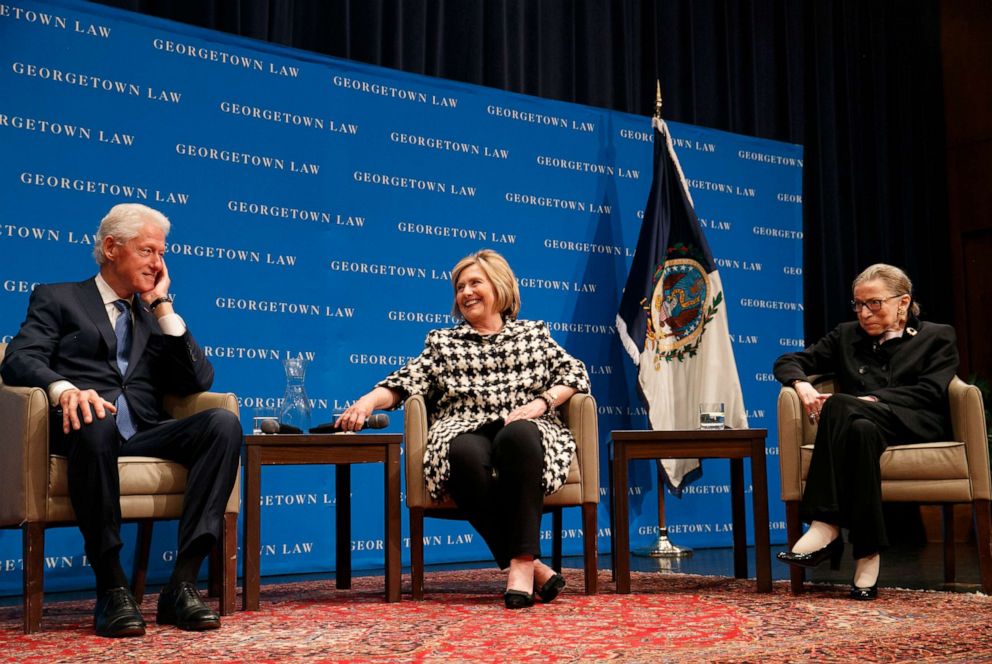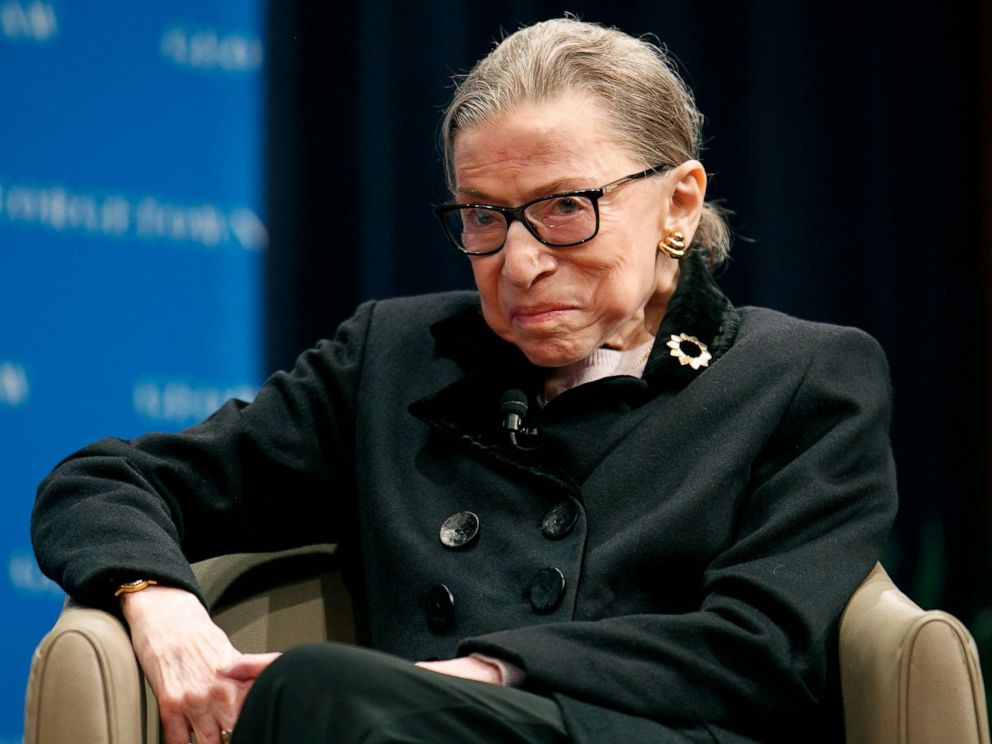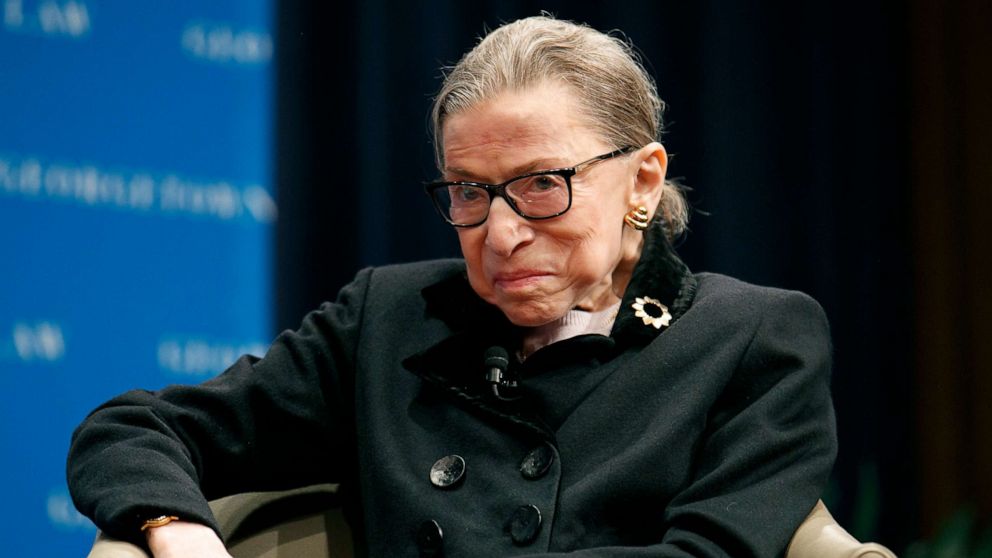[ad_1]
Former President Bill Clinton revealed Wednesday that he openly discussed the issue of abortion with the woman he would later make his first nomination to the U.S. Supreme Court, Ruth Bader Ginsburg.
While Ginsburg’s views on the issue were widely known ahead of her appointment in 1993, Clinton’s acknowledgement is striking at a time when political leaders in both parties have sought to avoid the appearance of an abortion litmus test for high court nominees.
“There is one thing that we did discuss, and I feel I should tell you, because it will illustrate why I thought I should appoint her,” Clinton said of his West Wing interview with Ginsburg during a rare joint appearance with the now-justice at Georgetown University Law School.
 Jacquelyn Martin/AP
Jacquelyn Martin/AP
“Abortion was a big issue in 1992 — the right to choose. I was one of the first pro-choice Democrats to run since Roe v. Wade, who actually benefited from Roe v. Wade,” Clinton said. “Now, she didn’t have to say anything about this. She knew this perfectly well that I was under a lot of pressure to make sure I appointed someone who is Simon-pure, which I had said was important.”
It’s not known whether other recent presidents have privately asked potential nominees how they might rule on abortion rights cases, but none have publicly admitted to doing so. Most recent nominees themselves have been circumspect in public statements on the topic.
Ginsburg, currently the oldest justice on the court at 86, was confirmed by the Senate 96-3 as a celebrated advocate for gender equality and a judicial moderate. Her support for abortion rights generally was spelled out in speeches she gave before her nomination.
In March 1993, five months before Clinton tapped her for the bench, Ginsburg delivered a lecture defending the court’s decision in Roe but disagreeing with the rationale, arguing for a narrower ruling on the basis of equal protection.
“I asked her the question and she talked about it just as if it was any other issue, no effect, this is what I think, this is why I think it. And she made a heck of a case,” Clinton said.
After nominating her to the bench, Clinton declared that his pick was “clearly pro-choice.”
“I was very well aware of her work as a litigator and academic and judge — admired it enormously,” former first lady Hillary Rodham Clinton said at the Georgetown event of her involvement in Ginsburg’s nomination. “I also knew what a difference her pioneering work on gender meant.”
 Jacquelyn Martin/AP
Jacquelyn Martin/AP
Ginsburg did not address abortion, or her conversation with Clinton about it, on Wednesday during the event with the Clintons.
In a recent conversation with Jeffrey Rosen, president of the National Constitution Center, for his forthcoming book on Ginsburg, the justice said she thinks Roe, “has pretty strong precedential weight by now” and is not at imminent risk of being overturned.
“We have no crystal ball,” she said, “but a second direct confrontation may be ahead. If so, the odds, I think, are in favor of it not being successful.”
The court will consider state restrictions to some abortion rights, however. This term the justices will hear a challenge to a Louisiana law requiring doctors who perform abortions to have admitting privileges at nearby hospitals.
[ad_2]
Source link

